The 13th Rome Film Fest devotes an ample section of its programme to the onstage conversations with directors, actors, and important cultural and sport figures.
 LIFETIME ACHIEVEMENT AWARD 2018
LIFETIME ACHIEVEMENT AWARD 2018
MARTIN SCORSESE
The thirteenth Rome Film Fest will celebrate Martin Scorsese, one of the finest figures in the history of the seventh art, bestowing him with the Lifetime Achievement Award presented by Paolo Taviani. On this occasion, the American filmmaker, author of a remarkable series of masterpieces from Mean Streets and Taxi Driver to Raging Bull, from Goodfellas to Casino, from Gangs of New York to The Departed, from The Wolf of Wall Street to Silence, will take part in a Close Encounter with the audience. During the event, Scorsese will review his fifty-year career and discuss a selection of clips from Italian films that have had a long-lasting effect on his life and his work.Scorsese’s ties with Italy have marked his entire career. Born in Little Italy into a family of Sicilian immigrants, his passion for Italian movies has accompanied him since childhood, when after school, he would run to the dilapidated movie theatres in his neighborhood to see the Italian films that arrived at the time, the masterpieces by Rossellini, De Sica, Antonioni and especially Fellini. In a dedicated event to be held during the Fest, the Oscar®-winning director will also present the restored version of San Michele aveva un gallo by the Taviani brothers, a tribute to the memory of Vittorio, who recently passed away. Scorsese, who is personally committed to the battle for the preservation of cinema, has selected three films for the audience in Rome, restored by The Film Foundation. The restored films are: Detour by Edgar G. Ulmer, 1945. Restoration by Academy Film Archive and The Film Foundation co-financed by the George Lucas Family Foundation; One-Eyed Jacks by Marlon Brando, 1961. Restoration by Universal Studios with the support of The Film Foundation and supervised by Martin Scorsese and Steven Spielberg; Ganja & Hess by Bill Gunn, 1973. Restoration by The Museum of Modern Art with the support of The Film Foundation.
The Close Encounter with Martin Scorsese is supported by Campari. The director will be the guest of honour at an exclusive evening event organized at Villa Medici in collaboration with Vanity Fair.
 LIFETIME ACHIEVEMENT AWARD 2018
LIFETIME ACHIEVEMENT AWARD 2018
ISABELLE HUPPERT
Claude Chabrol’s muse, ever since she appeared on the screen for the first time in 1971 in Nina Companéez’s Faustine et le Bel Été, it was obvious that Isabelle Huppert would never be an actress like the others. The Rome Film Fest has chosen to pay tribute to her talent and versatility by presenting her with the Lifetime Achievement Award, which she will receive from the hands of Italian actor Toni Servillo. The Parisian actress will also attend an onstage conversation, during which she will comment on a series of clips selected from the films that have had the greatest influence on her life as an artist. The indisputable queen of European film, blessed with unparalleled charm and talent, unequalled in her capacity to appear aristocratic, sensual and dark, Huppert has conquered audiences with her performances playing roles characterized by unconventional complexity and depth, always restless and anti-conformist. Throughout the course of her career, she has worked with some of the greatest European and American filmmakers: from the above-mentioned Chabrol to Jean-Luc Godard, Marco Ferreri, the Taviani brothers, Marco Bellocchio, Michael Haneke, Michael Cimino, David O. Russell and Maurice Pialat (the Rome Film Fest retrospective dedicated to the French director will include Loulou starring Huppert). She has won awards around the world for her performances, including a Golden Lion for Lifetime Achievement in Venice in 2005 and a Golden Globe in 2017 for Elle by Paul Verhoeven – a film that won Huppert her first Academy Award nomination. She has brought instinctive acting to a level never achieved by any other actress, offering her audiences characters driven by intense inner contradictions and deep fragilities. The Close Encounter is organized with the support of Poste Italiane.
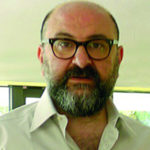 PIERRE BISMUTH – A project of Videocittà in collaboration with Rome Film Fest
PIERRE BISMUTH – A project of Videocittà in collaboration with Rome Film Fest
Not just Cinema, but all the visual arts will be the focus of the conversation with Pierre Bismuth, which will take place at the MAXXI Museum, organized in collaboration with Videocittà. A post-conceptual artist, Bismuth creates works in which thought, concepts and ideas become images, visions and sounds, works that reflect and explore relationships and the boundaries between perception and reality, between make-believe and reality, halfway between fiction and documentary, mixing genres, styles and means of communication.
Born in 1963 in Neuilly-sur-Seine, he studied art first in Paris, then in Berlin with Georg Baselitz. The created installations using various media, such as painting, sculpture, video and collage, and ventured into cinema, winning the Oscar for Best Original Script with Charlie Kaufman and Michel Gondry in 2005 for Eternal Sunshine of the Spotless Mind, a film that is perhaps one of the finest portrayals of the mechanisms and landscapes of the human brain and soul. In 2016 he debuted as a director with Where is Rocky II? Cinema appeared in deconstructed form in some of his earlier installations previous to the script of Eternal Sunshine of the Spotless Mind, whereas art is the protagonist of Where is Rocky II? In fact, like in a play of mirrors, the title of his first feature film does not refer to the boxer played by Sylvester Stallone, but to a mysterious work of art, a fake stone made of resin created in 1979 by Ed Ruscha and hidden by the artist among the very real rocks of the Mojave Desert. This work has never appeared in any official catalogue and the film follows Bismuth’s own search for this work of art, with a private detective he paid for himself, and two Hollywood scriptwriters who want to write a film about this sort of treasure hunt.
 CATE BLANCHETT
CATE BLANCHETT
The 2018 Close Encounters series includes the onstage conversation with one of the most intense and refined actresses of contemporary cinema, two-time Oscar® winner Cate Blanchett. Honored by the Academy for her roles in The Aviator by Martin Scorsese and Blue Jasmine by Woody Allen, the Australian actress boasts an exceptional roster of collaborations with directors such as Steven Spielberg, Peter Jackson, Wes Anderson, Ron Howard, David Fincher, Steven Soderbergh and Todd Haynes. After enrolling in the Department of Economics of the University of Melbourne, Cate decided to leave the university to study acting at the National Institute of Dramatic Arts in Sydney and, after graduating, became a member of the Sydney Theatre Company. In 1997, she made her cinematic debut beside Glenn Close in Paradise Road directed by Bruce Beresford. But it was the following year that she was catapulted to the pantheon of the stars, for her performance as the haughty and resolute Queen Elisabeth in Shekhar Kapur’s Elizabeth, the role for which she earned her first Academy Award nomination and went on to win the Golden Globe. From then on, her career soared inexorably on the wings of her performances in very different roles, all played with style and elegance.
Blessed with aristocratic allure and the magnetic appeal of a diva from days gone by, in 2016 the United Nations High Commissioner for Refugees appointed her Goodwill Ambassador for her humanitarian commitment.
 THIERRY FRÉMAUX
THIERRY FRÉMAUX
Thierry Frémaux has been the General Director of the Lumière Institute in Lyon since 1997, at the head of the Cannes Film Festival since 2001, first as the Artistic Director and then as General Delegate. As curator of one of the most prestigious film festivals in the world, he has been able to reconcile the two souls of cinema: business and art. He has spent his life viewing more than a thousand films a year, searching for and selecting films around the world, convincing actors, directors and artists to serve as members of the juries. He has told the story of this life in his biography “Sélection officielle”, published in France in 2017 (Éditions Grasset): 600 pages of memories and anecdotes about glitches, conversations and diplomatic solutions to solve the most complicated situations. Recently, his rigorous decisions – some of which against the tide – whipped up controversy. The Rome Film Fest onstage conversation with Thierry Frémaux will be an opportunity to discuss the meaning of film festivals today and their possible future evolution.
 MARIO MARTONE
MARIO MARTONE
Conversation with Italian writer Concita De Gregorio on global literary sensation, Elena Ferrante
Mario Martone started out directing for the stage before making his directorial debut with Morte di un matematico napoletano (Death of a Neapolitan Mathematician, 1992), the story of Renato Caccioppoli that earned him the Grand Jury Prize at the Venice Film Festival, as well as a David di Donatello and Silver Ribbon Award for Best New Director. The following year Martone was in his native city Naples to film the medium-length film Rasoi (1993), inspired by a play he had previously staged at the Teatro Mercadante. Known for his lean, unsparing films, such as L’amore molesto (Nasty Love, 1995, David di Donatello Award for Best Director), Teatro di guerra (Rehearsal for War, 1998) and L’odore del sangue (The Scent of Blood, 2003), all of which premiered at Cannes, more recently he shifted gears to make a film about Italy’s Risorgimento, Noi credevamo (We Believed), starring Luigi Lo Cascio, which won several awards. After Il giovane favoloso (Leopardi, 2014) about the life of poet Giacomo Leopardi, Mario Martone has recently directed Capri-Revolution, set on the island in the Bay of Naples in 1914. The filmmaker will attend the 13th Rome Film Fest for a Close Encounter during which he will discuss with Concita De Gregorio about international publishing sensation Elena Ferrante, now that she is famous the world over for her series “The Neapolitan Novels”. The two artists intersect in the screen adaptation of Ferrante’s novel L’amore molesto (Nasty Love), which will screen at the Rome Film Fest in a newly restored version.
 MICHAEL MOORE
MICHAEL MOORE
Oscar®-winning American filmmaker and political activist Michael Moore, who present his latest film, Fahrenheit 11/9, at the 13th Rome Film Fest, will also takie the stage for a Close Encounter. Born in Davison, a suburb of Flint, Michigan, in 1954, and expected to work at the General Motors factories (like his father and grandfather), at age 22 Moore decided to try his hand at journalism, and founded the local paper The Flint Voice, where he worked for ten years as its editor. In the late 1980s, he turned to documentary filmmaking, and from that moment on, the insight and sagacity of this “working-class hero” who declared war on the system would change the approach to the documentary genre forever. Known for being able to combine in his films a straightforward style, free from artifice and particularly well-suited to describing the political and economic dynamics at play in the United States, with a heavy dose of irony, over the years Moore has investigated a variety of issues deemed terribly inconvenient by the establishment. They include: the insatiable greed of the automobile industry (Roger & Me), the roots of America’s predilection for gun violence (Bowling for Columbine, Oscar® for Best Documentary in 2003), the controversial Republican reaction to 9/11 (Fahrenheit 9/11, Palme d’Or at Cannes in 2004), the rampant corruption in the healthcare system (Sicko), the ‘greed-is-good’ of Wall Street (Capitalism: A Love Story), and American military policy as compared with that of European nations (Where to Invade Next). The power of raw facts, handled with pragmatism and consummate skill: these are the hallmarks of Michael Moore’s style.
 SHIRIN NESHAT – A project of Videocittà in collaboration with Rome Film Fest
SHIRIN NESHAT – A project of Videocittà in collaboration with Rome Film Fest
Iranian photographer, video artist and director Shirin Neshat, winner of an award at the Venice Art Biennale in 1999, and of the Silver Lion for Best Director at the 66th Venice International Film Festival in 2009 for her debut feature film Women Without Men, will attend an onstage conversation organized at the MAXXI Museum in collaboration with Videocittà. Internationally renowned as one of the most representative contemporary artists, in her exploration of the complexity of social conditions within the Islamic culture, Neshat has always turned her gaze to the role of women. The condition of women and the complex forces rooted in tradition and religion that regulate this condition, as well as the relationship between the Islamic and the Western culture have become, over the years, the core around which she has developed her artistic research. Following her early years of study in Teheran, she moved to the United States in 1974 to pursue a Master of Fine Arts at the University of Berkeley, where she began her career as a photographer, progressively turning to film and video art. Her return to Iran at the end of the revolution influenced her career, though since 1996 she has been prohibited from returning to her native country. In 2017, she directed her second feature-length film, Looking for Oum Kulthum, and was commissioned the artistic direction of the Aida staged at the Salzburg Festival and directed by Riccardo Muti. Today Shirin Neshat lives in New York and her art, appreciated around the world, continues to range between tradition and modernity, free from all constraints.
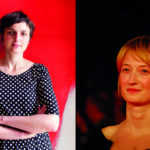 ALBA ROHRWACHER AND ALICE ROHRWACHER
ALBA ROHRWACHER AND ALICE ROHRWACHER
It certainly cannot be said that the Rohrwacher family lacks talent, as Alba and Alice demonstrate: the former an actress, the latter a director and screenwriter. The two sisters attend a Close Encounter on the closing day of the Rome Film Fest. Following her early studies at the Accademia dei Piccoli in Florence, her native city, Alba graduated from the Centro Sperimentale di Cinematografia in 2003. The following year she made her film debut in L’amore ritrovato by Carlo Mazzacurati, immediately capturing the attention of critics and audiences. The fresh and discreet quality that distinguishes each of her characters set her apart from other actresses of her generation, as shown by her rising career studded with successes. She has starred in films such My Brother is an Only Child, Days and Clouds (David di Donatello as Best Supporting Actress), Giovanna’s Father (Best Actress at the David di Donatello) and Hungry Hearts by Saverio Costanzo, which won her the Coppa Volpi for Best Actress in Venice in 2014. Alice, who is two years younger, took only two films to establish her reputation as one of rising talents in European cinema: Heavenly Body, presented at the Quinzaine in Cannes, for which she won the David di Donatello as Best Debut Director and The Wonders, Grand Jury Prize at Cannes (starring, among others, her sister). Her cinema moves between memory and nostalgia, and is rich in fairy-tale and folk elements, which convey to the public the magic and disenchantment of worlds that are on the verge of disappearing. In 2018, again at Cannes, she won the Award for Best Screenplay for Happy as Lazzaro, starring Alba.
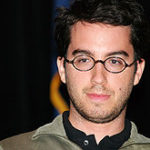 JONATHAN SAFRAN FOER
JONATHAN SAFRAN FOER
Italian writers Primo Levi and Italo Calvino are two of his favorites, his true masters. With Levi he shares his Judaism, with Calvino his taste for imagery and surrealism. At the age of forty, Jonathan Safran Foer is considered one of the greatest and most original talents of world fiction. The American novelist will attend an onstage conversation and, starting from his own works, he will explore the relationship between literature and cinema. His first novel “Everything is Illuminated”, published in 2002, was an unusual existential pilgrimage through memory, inspired by the trip to Ukraine he really took in 1999, searching for traces of his ancestors, in particular his grandfather (Safran Foer’s mother is the daughter of Holocaust survivors). The book became an international best-seller, acclaimed by literary critics. His second book, “Extremely Loud and Incredibly Close”, published in 2005, explores the post-9/11 era in the United States, from an original and disconcerting point of view. Both novels were adapted for film: the first, in 2005, directed and written by Liev Schreiber; the second, in 2011, directed by Stephen Daldry, starring Sandra Bullock and Tom Hanks. In 2009, he wrote the essay “Eating Animals”, a dramatic accusation against eating meat and intensive animal husbandry, and a formidable account of the writer’s moral decision to be a vegetarian. A long interval of eleven years – which, as Foer has explained, he spent exclusively taking care of the children he had with novelist Nicole Kraus – went by before his next novel “Here I Am”, published in 2016. “Here I Am” is a profound examination of the life of a couple whose marriage is on the rocks, that courageously addresses the theme of family and identity in the present time.
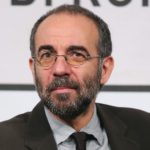 GIUSEPPE TORNATORE
GIUSEPPE TORNATORE
Giuseppe Tornatore is one of the most beloved and awarded Italian filmmakers. He has built his career on a cinema that nostalgically evokes the past – profoundly Italian yet an easy export abroad – with a power that lies in telling small and simple stories of a lost world, with a delicacy and a blend of melancholy and irony that give the tale an aura of lyrical magic. At the upcoming Rome Film Fest, the filmmaker will attend a Close Encounter in which he will discuss with the audience his passion for the noir genre, in literature and cinema. Tornatore began his artistic career as a photographer. Before directing his debut film Il camorrista in 1986, he was a director for the theatre and television, and for a series of documentaries. His sophomore feature film Cinema Paradiso marks a turning point in his career. The film won the Oscar® for Best Foreign Language Film in 1990, the Grand Prix Special du Jury at the Cannes Film Festival, a Golden Globe and five BAFTA awards. In 1995, he was nominated again for the Oscars® for The Starmaker. Tornatore’s cinema is one of memory, from Malèna to Baarìa, from La leggenda del pianista sull’oceano to The Unknown Woman, through the more recent The Best Offer and Correspondence, he has consolidated an identity by using a language that is as universal as it is personal, and always extremely poetic. The Close Encounter is organized with the support of Poste Italiane.
 SIGOURNEY WEAVER
SIGOURNEY WEAVER
With her magnificent performances, Sigourney Weaver has established her reputation through the image of a secure and determined, staunch and resolute woman, who can embody characters that reveal an energy and freshness uncommon in Hollywood. Gifted with unquestionable stage presence, charisma and a significant measure of allure, the actress will review her brilliant career during an onstage conversation.
Born in New York into a family in the entertainment business (her father, Sylvester Weaver, was an established television producer), Susan Alexandra Weaver decided to take the stage name Sigourney after seeing The Great Gatsby by Elliott Nugent. In high school, she attended acting classes, and in 1977 she made her debut as an extra in Woody Allen’s Annie Hall. Two years later, Ridley Scott offered her the passport to success, giving her the lead in the first chapter of the cult sci-fi saga Alien. She will star in the three Alien sequels: Aliens (1986) was a huge success, and she was nominated for both a Golden Globe Award and an Oscar. She earned two more Academy Awards nominations: in 1988, for her intense portrayal of researcher Dian Fossey in Gorillas in the Mist by Michael Apted (for this role, she won a Golden Globe), and in 1989, for her portrayal of a brilliant and ambitious businesswoman in Working Girl by Mike Nichols. The list of directors who chose her to star in their films is truly remarkable, from Ivan Reitman to Ang Lee, Roman Polanski, David Fincher and James Cameron, to name a few.
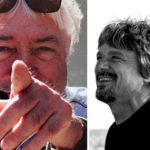 Cinema Professions | Cinematographer
Cinema Professions | Cinematographer
ARNALDO CATINARI – LUCIANO TOVOLI
The cinematographer is a key figure in the making of any film, and over the decades, the ‘Italian school’ has pulled extraordinary “masters of light” out of its hat, with several of them have winning international acclaim. Directors of photography Luciano Tovoli and Arnaldo Catinari will discuss their work in an onstage conversation curated by Mario Sesti. Tovoli, winner of two Natro d’Argento Awards, in 1976, for The Passenger by Michelangelo Antonioni, and in 1989 for Splendor by Ettore Scola; and Catinari, the cinematographer of films such as Light of My Eyes, The Caiman, Tell Me About Love, The Demons of Saint Petersburg and Angels of Evil. Tovoli was born in 1936 and got his start as a cinematographer on the film Something Like Love by Enzo Muzii in 1968. He has worked with several directors in Italy and abroad: Luis Buñuel, Valerio Zurlini, Marco Ferreri and Dario Argento. His cinematography for Suspiria is still considered one of the most innovative and disturbing ever produced. A leading exponent of the reinvention of the canons for Italian cinema in the 1970s, Luciano Tovoli is a true wizard with lighting, gifted with the ability to use shadows to shape light, creating associations in viewers’ minds that remain indelible. Catinari has over eighty credits to his name as a cinematographer to Italy’s best-known contemporary filmmakers, such as Gabriele Muccino, Nanni Moretti, Luciano Ligabue, Paolo Virzì and Riccardo Milani. His style is a sophisticated combination of innovation and classical technique; indeed, his every frame manages to contain both tradition and revolution.
 Cinema Professions | Editor
Cinema Professions | Editor
ESMERALDA CALABRIA – GIOGIÒ FRANCHINI
Stanley Kubrick said, “everything that precedes editing is merely a way of producing film to edit”. Editing is the last and definitive act of writing a film, after the screenplay and the shooting, and will be the focus of a conversation curated by Mario Sesti, that will bring together two influential Italian film editors: Giogiò Franchini and Esmeralda Calabria. An editor who works “from the gut”, as Giogiò Franchini likes to define himself, a magician of sound, he has worked with directors such as Paolo Sorrentino, Jonathan Demme and Valeria Golino, and won a David di Donatello award for La ragazza del lago by Andrea Molajoli. Over the years, Franchini has advanced the concept of film editing as a tool to startle and awe the viewer, with the sole purpose of capturing and keeping the spectator’s attention. Esmeralda Calabria has served as editor for auteurs such as Nanni Moretti, Francesca Archibugi and Giuseppe Piccioni. Winner of a David di Donatello and a Nastro d’Argento awards for Romanzo criminale by Michele Placido, she is also a director: she made her debut behind the camera in 2007 with Biùtiful cauntri followed, in 2017, by the documentary film Lievito madre – Le ragazze del secolo scorso, co-directed with Italian journalist and writer Concita De Gregorio. She believes film editing to be a powerful tool for enhancing poetry and imagination that can supersede the narrative structure of the text in favor of the images.
Previous Article#RomaFF13 | “Pre-opening” screenings: a series of screenings tell the story of the persecutions and the Holocaust
Next Article #RomaFF13 | Special Events Lineup
Related Posts
Leggi anche
Add A Comment

